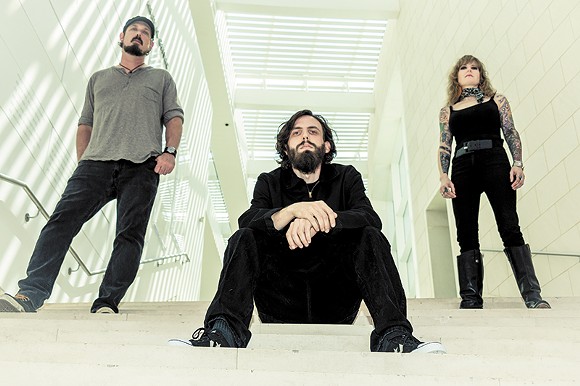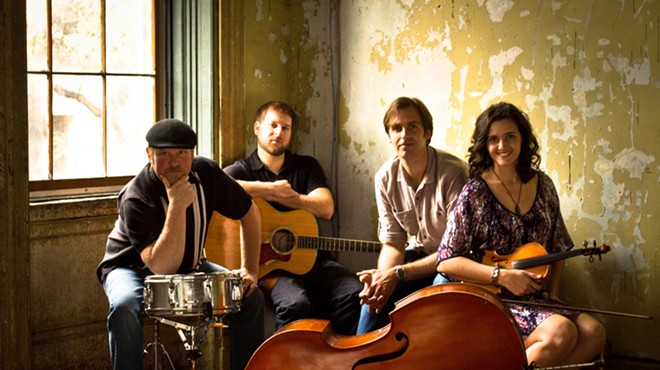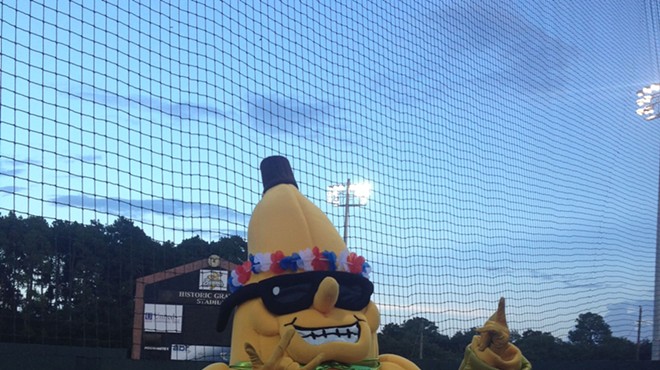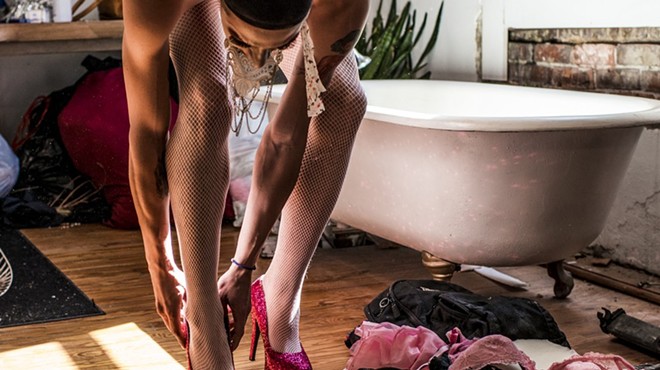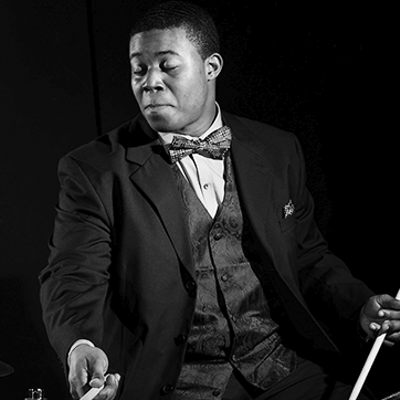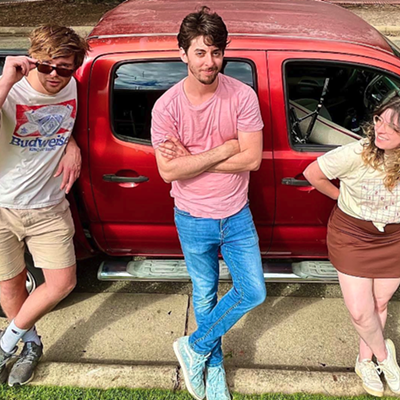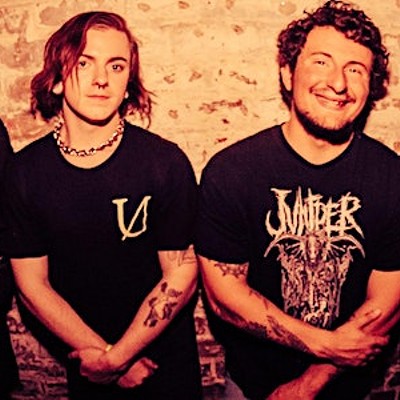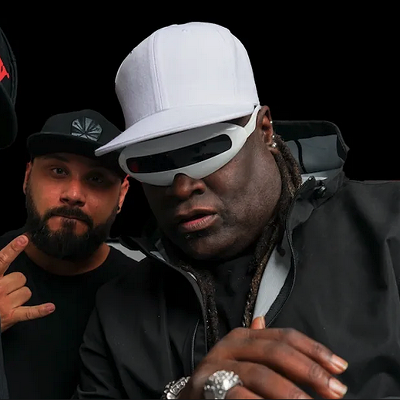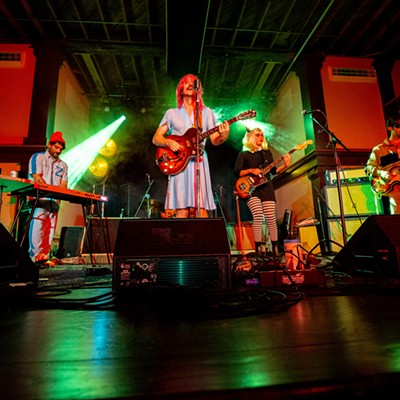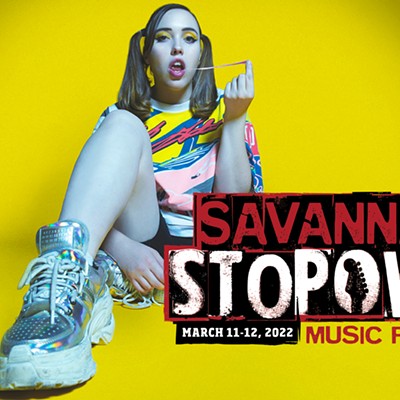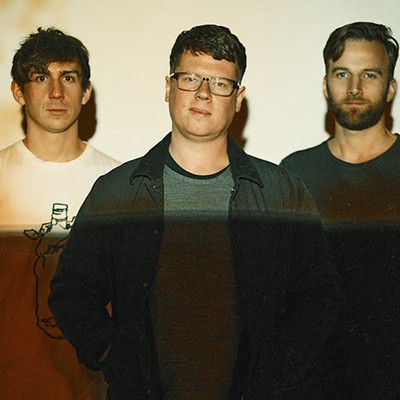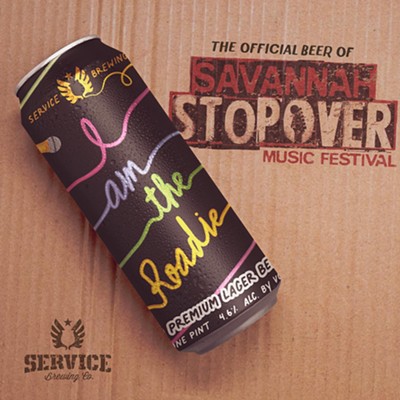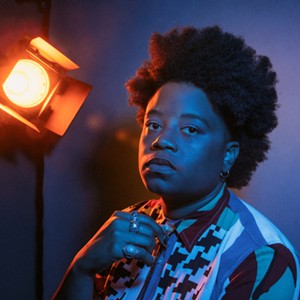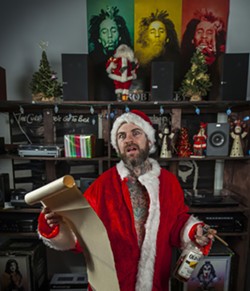
"2016 IS THE YEAR of growing pains," announces Matt Collett.
The co-owner of The Garage Savannah and seasoned drummer should know. Shaped by the Savannah scene since he was just a kid playing in heavy rock bands, Collett has witnessed the tidal nature of his hometown music scene time and again.
Some years, the chemistry is just right: a crop of devoted individuals brimming with ideas and song, open doors at a variety of venues ready to book original music, local bands touring, touring bands playing locally, Savannahians recording and distributing music by Savannahians, patrons shelling out the cover charge and dancing all night to local music.
And some years, it’s just not.
Savannah’s a transitional town, and sometimes, the real highs are followed by real lows. Collett isn’t alone in his sentiment that 2016 was a pivotally odd year in the music scene. Club promoters have reported strangely low turnouts. Key players have uprooted and moved out of town. And the nation’s future looms large and menacing over the creative community.
So why aren’t we seeking shelter in song? What can we do to make 2017 a great year for local music? Connect spoke with the folks fighting hard within Savannah’s scene to find out.
Closing doors
As downtown Savannah continues to market itself as a travel destination, small businesses in the entertainment industry have been directly affected.
“We lost so many music venues in the last year, and so many venues trying to push something different,” sighs Steven Baumgardner a.k.a. Basik Lee, MC, DJ, singer-songwriter, and longtime host of Hip-Hop Night at The Jinx.
In 2016, several downtown venues, including Hang Fire and Ampersand, closed their doors as the buildings they occupied went on the market. In 2017, Dollhouse Productions, Blake and Peter Mavrogeorgis’ recording studio and venue space, will be taken over by a new tenant. As of press time, Blake told Connect that the future of Dollhouse in Savannah is yet to be determined. Off Victory Drive, historic Johnny Harris Restaurant was demolished, forcing the Savannah Songwriters Series to a new location and dissolving a tradition (the series spent the rest of 2016 at Tybee Post Theater and will move to The Sentient Bean in 2017).
Strangely, as Kayne Lanahan of Savannah Stopover observes, “There are less options, but it doesn’t seem like having fewer options has made the options that are left do really well in our experience.”
And as big business moves in downtown, big changes are coming with it.
“Musicians are up in arms, because lots of these places don’t have their own PAs, and they’re not paying more to their musicians,” Baumgardner observes. “As for DJing, it’s always been competitive, but it’s a hard sell to these new venues, especially smaller ones opening up and fighting these huge corporations. Small businesses are going through hell. If you’re feeding tourism, wouldn’t you want to feed into what makes downtown different, not the same?”
With tourism as the focus of downtown culture, musicians have found that many patrons have less of an interest in paying a cover to see live music.
“You go out of town, and you can charge covers,” says Miggs, a local rapper and musician who’s lived in Savannah for the past decade, toured frequently, and will move to Philadelphia in the new year with his partner, visual artist Lauren Schwind. “In Savannah culture, we can’t charge a big cover, or at all. What that means is there’s less of a turnout. How can we make the most money out of this?”
“Obviously, we’re in some sort of transition,” says Collett. “When it comes to what Jon Waits calls ‘menu venues,’ the menu venue bands—the Big E’s, the Eric Culbersons—they’re all displaced from their homes. When I was growing up, Mercury Lounge was Culberson’s place, and now, it’s Barrelhouse and has become the place for bands that used to play Locos. The Jinx is way more inclusive now, basically everything there used to be in a heavy genre. It seems like a rebirth downtown that hasn’t quite taken yet.”
The Jinx, consistently voted Best Live Music Bar in Connect’s Best of Savannah awards, has broadened its horizons.
“The bar almost books itself,” says Gil Cruz, who handles booking at The Jinx. “I just wish people would come out more. I always book things people say they want, and thought it would be a good turnout, and people just don’t show up.”
Savannah-born Baroness, who received their first Grammy nomination this year, played their first “hometown” show in years at The Jinx in December 2015, setting the course for a 2016 studded with big shows like Skeletonwitch, Savannah’s own Black Tusk, promoting their critically-acclaimed album Pillars of Ash between tours, Damad’s reunion, and more.
Those big-ticket shows pack the house, but Cruz notices that audiences aren’t necessarily taking a chance on something new, like when lesser-known touring bands come through.
“I wish people would realize that, yeah, Savannah is smaller than Atlanta or New York or Chicago, but our music scene is really, really awesome,” says Cruz. “People are not taking advantage of what we have here.”
“I feel like [in places like New York], the scene is a higher art form, to be respected and really participated in,” says Collett, “whereas around here, it’s kind of seen as an annoyance or a background feature. I’d like to see the scene elevated, respected.”
Lanahan suggests that as Savannah grows, there might just be too much to do in the evenings.
“You can only cut the pie in so many pieces,” she observes. “As you slice more things, each gets smaller.”
Stopover has taken notice of this and pared down on their year-round bookings in 2016. “It’s harder to get people’s attention if you’re always trying to get their attention,” she says.
Away they go
2016 was one of those years that saw numerous influential contributors moving away from Savannah. Colleen Heine and Zach Smith of The Accomplices, Ryan McCardle of DIY record label Furious Hooves, which released a compilation of all-local tunes, STAY RAD SAV, this year, electronic music wizard and effects pedal builder Ross Fish, and a slew of SCAD students active in the DIY scene, including the majority of The Bomb Shelter Records crew, graduated and moved away. Members of Triathalon—whose 2016 EP “Cold Shower,” released on Broken Circles Records, was a critical darling—moved, and the jazz/math/prog band Culture Vulture flew the coop to pursue bigger things in L.A.
Meanwhile, back on the home turf, many bands dissolved, including Kylesa, juggernauts who have been redefining the international metal and heavy music scene for 15 years. Having fewer booking options makes it difficult for promoters to create unique bills; ideally, bands play less frequently so they pack the house when they do take the stage. Cruz notes that the dissolution of a large percentage of Savannah’s punk bands makes it hard to round out a bill when The Jinx gets a great touring act in the genre.
“We’ve lost a great amount of talent,” says Baumgardner, “and most will all say the same thing: they love the city, the community, the energy is great, they have so much love for how the artists are with each other here. It’s just that fight of finding your niche and being able to sustain with it.”
For Miggs and Schwind, leaving Savannah was a difficult but necessary decision. Miggs got his musical start with the collective Word of Mouth, going on to join the Dope Sandwich crew, and spent years bringing touring acts to Savannah and invigorating the scene with his visual art and musical talents.
“Savannah is a great city for nurturing artists,” he points out. “I feel we’ve definitely been nurtured here and been able to explore what works for us. As far as ‘the market,’ the external aspect of making art, we need to figure out the best way to survive in the industry, and Savannah is not the big playing field for that.”
“There were two quotes I heard this year that really resonated with me, being very true about Savannah,” Schwind shares.
“One, ‘In Savannah, you learn to live with less.’ That resonates, because you learn to live by smaller means here, and I think that plays into the other that someone else, an artist, stated: ‘We need to stop buying each other’s work. We need to not be the only ones supporting each other.’ How does Savannah help support each other and its artists?”
“It breeds the question of how do we support the movement, the community, as opposed to supporting the individual?” Miggs poses. “Because if we’re all artists ourselves, we can’t sustain our own community without breaking out into the outside commerce.” “We need buyers,” affirms Schwind. “Can the people who live here afford to invest in artists?”
A national concern
Bookers have noted a sense of apathy and lukewarm turnouts in Savannah in 2016; some, like Lanahan and Peter Robaudo of Savannah Stopover, think the part of the problem might not be localized.
“This year has been a tougher year, and I definitely think that this being an election year has affected it,” says Lanahan. “Just in the last six months, even—it’s been like, everybody’s psyche and focus is on that. Even on social media, [promotion] is hard, and nobody’s in a very good mood. It’s kind of like this weight that hasn’t really lifted.”
The way the election brought alt-right ideology out of the depths of the internet and into the mainstream has posed a terrifying threat against DIY venues and queer safe(r) spaces across the U.S., including venues right here in Savannah.
2015 kicked off with a thriving DIY community spread throughout the Victorian Historic District and Thomas Streetcar Historic District. Any night of the week, there was a stacked punk show, an experimental music exhibition with live visuals from local artists, intimate acoustic concerts—you name it. Many venues closed before the summer as their buildings were sold or the occupants themselves moved away, but the young DIY community is tough and deeply passionate. QuoLab, which moved into a bigger space in 2016, had a successful year of growth, and several individuals felt compelled to open their homes and start DIY venues of their own as others began to close.
Then, on December 2, Ghost Ship, a warehouse in Oakland, California caught fire, killing 36 musicians and concertgoers. The devastating loss prompted a national dialogue on safe spaces for queer folks, musicians, and artists. It also inspired a call to action in alt-right internet forums: shut down your local DIY venue.
“The Oakland warehouse fire occurred in a radical leftist commune rife with HIV, drugs, and alternative lifestyle degeneracy,” a thread on the website 4chan decreed. “These communes are known as ‘DIY spaces’ to the bums, anarchists, and drug addicts who populate them.”
“These places are open hotbeds of liberal radicalism and degeneracy and now YOU can stop them by reporting all such places you may be or may become aware of to the authorities, specifically the local fire marshel [sic],” read a post.
“Watch them and follow them to their hives. Infiltrate social circles, go to parties/events, record evidence, and report it. We’ve got them on the run but now we must crush their nests before they can regroup! [Make America Great Again] my brothers and happy hunting!”
Soon, lists, addresses, and photos of venues were posted to the threads. Listings on DoDIY.org, a cornerstone DIY music site that helped connect bands and venues, were shared so that the venues could be targeted and shut down (DoDIY.org’s founder deleted the site’s entire contents on December 8 as a safety measure). Venues across the U.S. began deleting all signs of life from the Internet and cancelling any upcoming shows.
Days after the original posting, QuoLab was listed.
“I don’t think people realize the seriousness of this,” an anonymous local DIY promoter shares. “How our scene, and people’s lives, could be directly affected by this. For some reason, there are people in this world filled with confusion and hate and feel the need to attack others. I don’t know why, but what they’re doing is making an impact, and we’re doing our best to stop it.”
As a queer safe(r) space that booked a variety of genres of music, fused audio and visual art in eclectic billings, welcomed new artists to share their work and grow, opened its doors as shelter in literal disaster (Hurricane Matthew) and in daily comings and goings, offered workshops, and boasted a great zine library, QuoLab was essential to Savannah. Its second year of The World’s Smallest Music Festival was a bustling success, and the community around the space was growing. But after being targeted, the space’s facilitators have made the decision to bring QuoLab’s legacy to an end.
“QuoLab is closing its doors as a public art space in order to focus on ways to better serve the community in 2017,” its facilitators told Connect. “We thank you for your support and look forward to what the future holds.”
What can you do to support your local DIY scene in these uncertain times? One local DIY booker has a few tips: “Do not share the address of any DIY venue to anyone you don’t know and trust. [Don’t] use the venue name in posts or pictures of the outside of the venue. If possible, refrain from posting anything having to do with our DIY venues.”
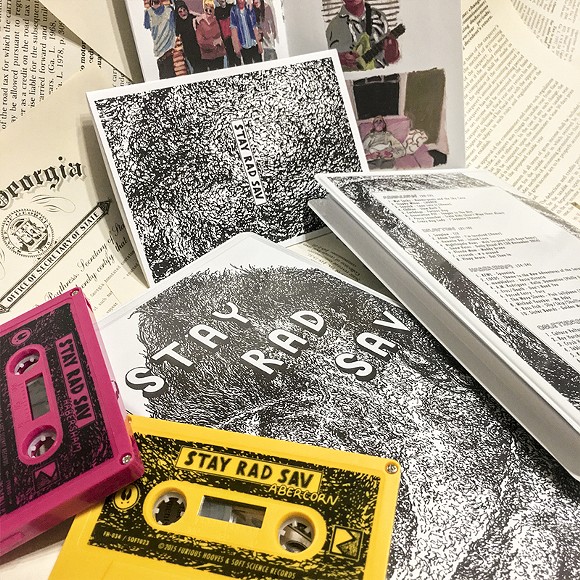
So what now?
“It’s still going to be an uphill battle,” says Baumgardner. “The question is, who’s willing to fight for it?”
Across the board, there is a call to look inward toward community collaboration. Collett, who’s recorded a scope of local talent this year at The Garage Savannah, including La Scrilla (the Savannah rapper’s latest music video, “Lyra,” has over 73,000 YouTube views), Hot Plate, and Clay Hodges’ EP, wants to see more artists working together.
“I’ve been thinking about doing a collaboration of all-Savannah artists,” he suggests. “How cool would it be to get everyone together in a space, mix all the bands up, everybody do a single? That’s something I’ve always wanted to do.”
In the age of social media oversaturation, Baumgardner suggests artists and promoters get back to human interaction, handing out flyers and telling people about their shows like Dope Sandwich did back in the day.
“One thing to remember in the early Dope Sandwich stuff, we were trading shows within the city, playing with people doing completely different genres, giving back, collaborating, and that’s another thing I think a lot of up-and-comers still don’t get—they think there are lines or places they can’t go and cross, and as a music community, we all gotta really support each other,” he urges. “I know it’s hard for us to all go see each other all the time—we’re all working—but make a healthy effort for that.”
“We are bands, promoters, etc. just need to keep on grinding,” says Jeffrey Tosh, who lost his long-running DIY venue, The Erasery, this year. “I wanted to show that a house could be more than just a house—it has the potential to be a showcase, a stage, a frame unique upon itself, a safe place where, no matter what you were after, for that night, you could come and be comfortable, entertained and hopefully inspired in quality way...what I truly sought was to inspire, either musicians to be better, or individuals to get off their asses and rise to the challenge of either forming a band or opening up their own space.”
As Miggs and Schwind reflect on their Savannah memories, they mention unique local festivals like TASTE, Square Fest and Urban Arts Festival that brought locals together and suggest bringing back small-scale celebrations of that nature to reinvigorate the community.
2017 is already showing a lot of potential. In the New Year, venues will be able to apply for a permit allowing people aged 18-20 into live performances; The Wormhole expects to kick off 18+ shows starting in January.
Opening up that age gap could allow for a sea change in Savannah music culture.
Plus, there are new venues on the way: The Stage on Bay, a 1,000-capacity venue, will be an all-ages establishment bringing in big names like Marshall Tucker Band, Mark and Ted Broussard, and Corey Smith. CEO Charlie Schmitt is a longtime music biz guy with plenty of industry connections; in addition to the classic rock and country gracing The Stage, he looks forward to hearing suggestions from the community on what kind of shows they’d like to see. Speaking with Connect, Schmitt shared that he looks forward to bringing a variety of genres to Savannah—particularly more indie acts—and offering affordable concerts to people of all ages. The Stage will also book local bands and pair them with touring acts whenever possible (about 50 percent of the time, Schmitt estimates—it all depends on whether the touring act has built-in support).
Some other fun news for 2017: Cusses is coming back! Catch them Friday, February 10 at The Jinx for a homecoming show. Catch all the shows, as many as you can. Host one, if you can.
Feel compelled to make some noise yourself? Gather some friends and jam. Scour Craigslist for instruments. Rent from your local music store. Play open mics (find ‘em in Connect’s Soundboard listings). Buy local albums. Blast them with the windows down. Sing loud, sing proud.
“We’re in a city where everywhere you are, somebody has some kind of dope superpower,” says Miggs. “To be in that energy—even if you’re not the type to go around, perform at shows—even the more reclusive artists feed off that.”
“The desire to create something, anything is here, right in this city, with these people,” says Tosh. “It mostly bubbles constantly and slowly below the surface, but it peeks its head out often enough to keep us living here as artists and thinkers. When it rises, we go on noticing that it hasn’t left us...and likely never will. It lends itself to hope. And that is the very best of a thing.”

